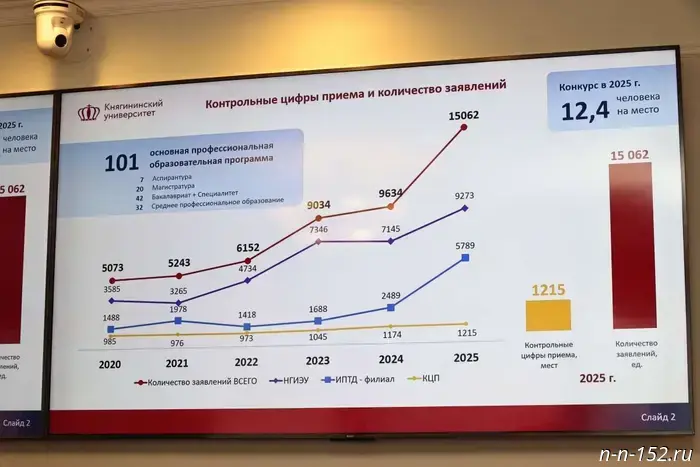
Evgeny Lyulin: "The development of agricultural classes helps provide the region with qualified personnel for the agro-industrial complex."
06 November 2025 17:12 Society
The topic of rural territory development continues to be discussed in the regional parliament. Together with representatives of the Ministry of Agriculture and Food Resources of Nizhny Novgorod Oblast, deputies summed up the results of the admissions campaign for agricultural specialties and the development of the region’s agricultural education system, including the creation and support of specialized classes in schools.
During the working meeting it was noted that active work continues in Nizhny Novgorod Oblast to create and develop agrotechnology classes in schools. Since 2025 the region has joined the implementation of the new federal project "Personnel for the Agro-Industrial Complex," whose main goal is to increase the staffing level of agro‑industrial enterprises to 95% by 2031. A roadmap has been approved for the project in the oblast and a Coordinating Council for the Development of Agrotechnological Education has been established.
To date, 144 agro‑classes have been opened in 84 schools across 39 municipal districts of the region. This is a noticeable increase compared to the previous school year, when there were 128 such classes. In the new school year children receive agricultural education starting from primary school. Students in middle and senior grades study chemistry and biology or physics and mathematics in depth, which allows them to make a more informed choice of future profession.
A key element of the system has become close cooperation between schools, academic partners (universities and technical colleges) and agro‑industrial enterprises. Twelve tripartite cooperation agreements have been signed. More than 40 agricultural enterprises, including large holdings and local farms, participate in the life of the agro‑classes. To support teachers and students, the digital educational services "I in Agro" and "Vector of Opportunities" have been created.
A distinctive feature of the "Personnel for the Agro-Industrial Complex" project is financial support from the state. Enterprises that invest in renovating agro‑classes, purchasing equipment or paying bonuses to teachers can recover from 30% to 95% of their expenses. In 2025, 17.3 million rubles have been allocated from the federal budget for these purposes. In the fourth quarter, reimbursements will be received by seven agricultural enterprises actively involved in equipping educational institutions and supporting teachers.
"It is fundamentally important for us to build a seamless system: from school to the workplace at an enterprise. We are actively expanding the network of agro‑classes so that children become familiar with agricultural professions from the school desk and remain in their homeland. At the same time, the region is working to increase the attractiveness of the sector for business and investors through programs and subsidies. A separate task is to retain young specialists in rural areas. For them, since 2025 the housing payment has been increased to two million rubles. All this comprehensive work is part of a large plan to supply the region’s agro‑industrial complex with qualified personnel," said Evgeny Lyulin, Chairman of the Legislative Assembly of Nizhny Novgorod Oblast.
Alongside the development of school education, the training of specialists in institutions of secondary and higher vocational education continues. The results of the 2025 admissions campaign in agricultural technical schools and colleges demonstrate a steady youth interest in agro‑industrial professions.
At Knyaginin University in 2025 more than 15,000 applications were submitted for 1,215 state‑funded places — more than 12 applicants per place. Over five years the number of applications from prospective students has tripled.
Ardatov Agrarian Technical School also successfully met its enrollment plan for most specialties. The most popular study areas were food technology from plant raw materials, economics and accounting, as well as the operation and repair of agricultural machinery and equipment.
In turn, Rabotkinsky Agrarian College graduated 117 specialists this year. Some graduates were immediately employed at agricultural enterprises, while others continued their studies at universities.
"The launch of the federal project 'Personnel for the Agro‑Industrial Complex' and the growth in the number of agro‑classes in the region are indicators of the state’s and youth’s interest in this field. Today we are creating a single educational vertical where school, technical college, university and enterprise become links in one chain. Our task is to interest a child in an agricultural profession so that he can build a clear and successful career in the region without leaving the oblast. In that case enterprises will receive specialists who are motivated to achieve results," said Igor Tyurin, Chairman of the Legislative Assembly Committee on the Agro‑Industrial Complex and Rural Development.
NIA "Nizhny Novgorod" has a Telegram channel. Subscribe to stay informed about the main events, exclusive materials and timely information.
Copyright © 1999—2025 NIA "Nizhny Novgorod". When reprinting, a hyperlink to NIA "Nizhny Novgorod" is mandatory. This resource may contain 18+ materials.
Другие Новости Нижнего (Н-Н-152)
 In the third season of the series "Fisher," Alexander Petrov will play the lead role.
Nizhny Novgorod News
In the third season of the series "Fisher," Alexander Petrov will play the lead role.
Nizhny Novgorod News
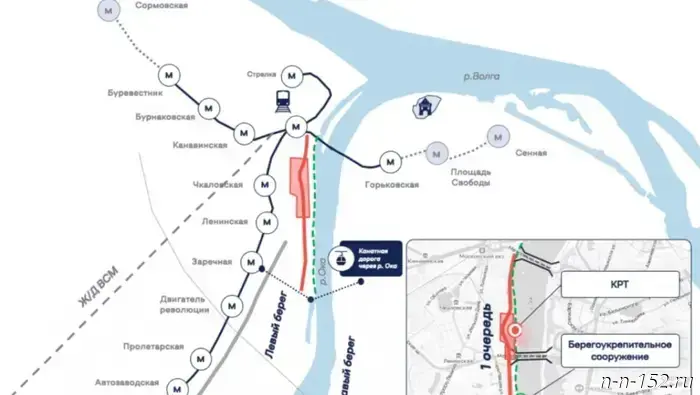 A residential building and garages may be demolished to make way for a parallel road to Lenin Avenue in Nizhny Novgorod.
Nizhny Novgorod News
A residential building and garages may be demolished to make way for a parallel road to Lenin Avenue in Nizhny Novgorod.
Nizhny Novgorod News
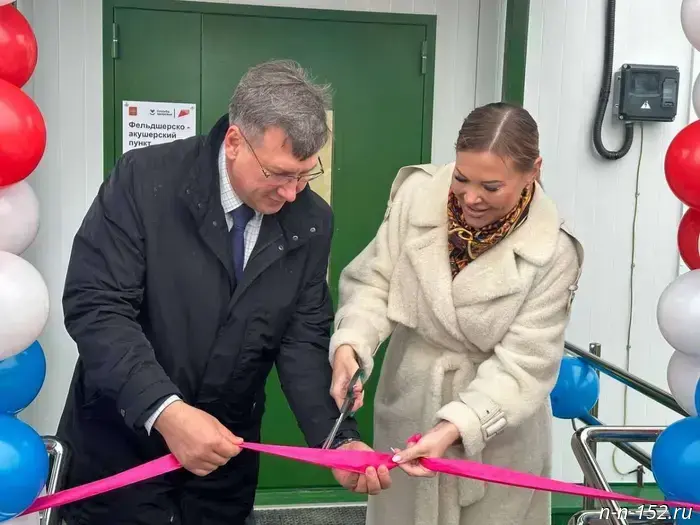 A new feldsher–obstetric station was officially opened in Kstovsky District.
Nizhny Novgorod News
A new feldsher–obstetric station was officially opened in Kstovsky District.
Nizhny Novgorod News
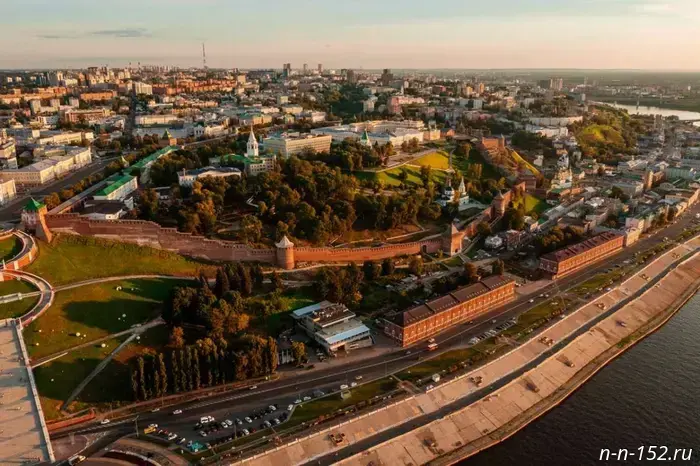 Nizhny Novgorod Oblast entered the top 10 of the all-Russian "Region-NKO" ranking.
Nizhny Novgorod News
Nizhny Novgorod Oblast entered the top 10 of the all-Russian "Region-NKO" ranking.
Nizhny Novgorod News
 Young farmers in the Nizhny Novgorod region can receive up to 2 million rubles for housing.
Nizhny Novgorod News
Young farmers in the Nizhny Novgorod region can receive up to 2 million rubles for housing.
Nizhny Novgorod News
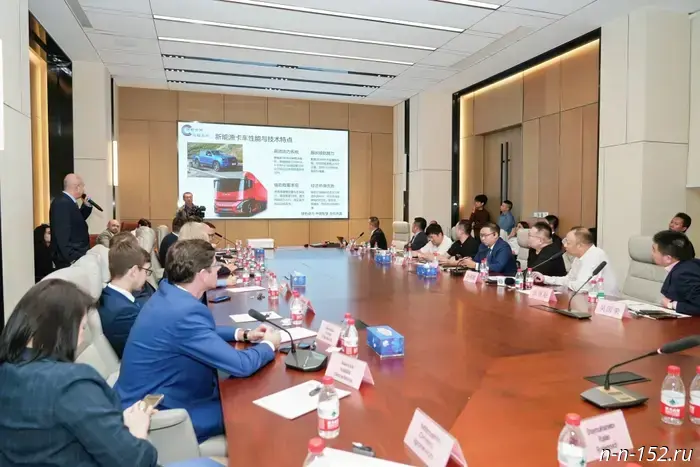 Andrey Sanosyan, as part of the AIRR delegation, visited China, where he presented the potential for cooperation with the Nizhny Novgorod Region.
Nizhny Novgorod News
Andrey Sanosyan, as part of the AIRR delegation, visited China, where he presented the potential for cooperation with the Nizhny Novgorod Region.
Nizhny Novgorod News
Evgeny Lyulin: "The development of agricultural classes helps provide the region with qualified personnel for the agro-industrial complex."
Nizhny Novgorod News
